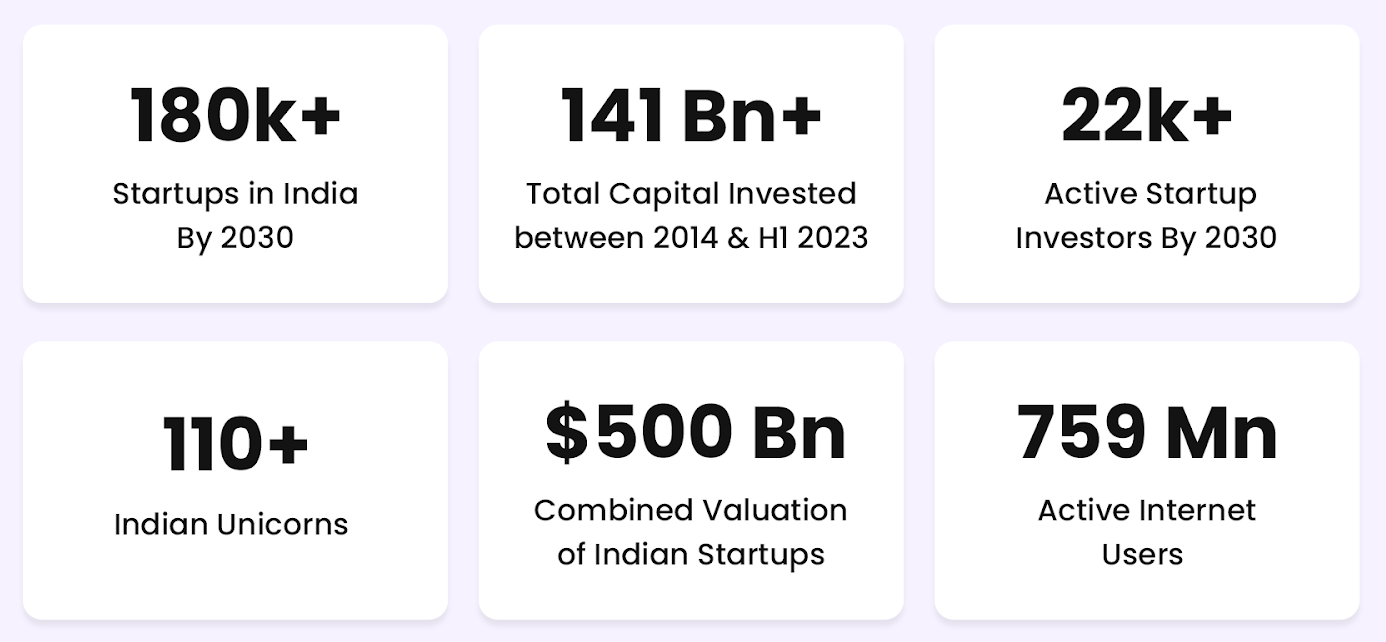Startup India. Starting a business can be an exciting and rewarding venture. However, before you can begin operating, it is essential to register your company. Registering your company not only gives you legal recognition but also provides various benefits and protections. In this guide, we will walk you through the process of registering your company in India and the importance of building a website for your business.
A Comprehensive Guide to Registering Your Company in India
Congratulations! You’ve decided to embark on the exciting journey of entrepreneurship in India. But before you turn your idea into reality, two crucial steps await: registering your company and establishing a strong online presence. Fear not, for this comprehensive guide will be your trusty companion, navigating you through the process with clear instructions, helpful resources, and expert insights from Infotyke, your one-stop shop for business solutions.
Part 1: Registering Your Company in India
</ Startup India >
1. Choose Your Business Structure:
The first step is to decide on the legal structure of your company. In India, you can choose from various options such as sole proprietorship, partnership, limited liability partnership (LLP), private limited company, or public limited company. Each structure has its own advantages and requirements, so it is important to choose the one that suits your business goals and needs.
The first step involves selecting the most suitable legal structure for your venture. Popular options include:
- Sole Proprietorship: Simple and ideal for small businesses, but offers limited liability protection.
- Partnership: Two or more individuals share ownership and profits, but also liabilities.
- Limited Liability Company (LLC): Offers limited liability protection for owners and flexibility in management structure.
- Private Limited Company (PLC): Provides greater liability protection and is ideal for companies seeking investment or growth.
2. Obtain a Digital Signature Certificate (DSC):
This electronic signature is essential for online filings and registrations. Several government-approved agencies issue DSCs. Once you have chosen your business structure, you need to obtain a Digital Signature Certificate (DSC). A DSC is an electronic form of a physical signature that is used to authenticate and verify electronic documents. It is required for filing various forms and applications online.
3. Apply for Director Identification Number (DIN):
Each proposed director of the company requires a DIN, obtained through the Ministry of Corporate Affairs (MCA) portal. Next, you need to apply for a Director Identification Number (DIN) for all the directors of your company. DIN is a unique identification number assigned to individuals who wish to become directors of a company. It is mandatory for all directors to have a DIN to operate a registered company in India.
4. Select a Unique Company Name:
Conduct a MCA name availability check to ensure your chosen name is not already registered. After obtaining the DSC and DIN, you can proceed with registering your company with the Ministry of Corporate Affairs (MCA). This can be done through the MCA’s online portal by filling out the necessary forms and providing the required documents. The registration process includes providing details about the company, its directors, shareholders, and registered office address.
5. File Incorporation Documents:
Depending on your chosen structure, file the necessary forms with the MCA portal. This might involve documents like the Memorandum of Association (MoA) and Articles of Association (AoA).
6. Obtain Relevant Licenses and Registrations:
Depending on your industry, you might need additional licenses or registrations from specific authorities. Once your company is registered, you need to apply for a Permanent Account Number (PAN) and a Tax Deduction and Collection Account Number (TAN). PAN is a unique 10-digit alphanumeric code used for tax purposes, while TAN is required for deducting and collecting taxes on behalf of the government.
Pro Tip: Consider seeking professional guidance from a chartered accountant or lawyer to ensure smooth and compliant registration.
Part 2: Building Your Company Website in India
</ Startup India >
In today’s digital age, having a website for your business is essential. It not only helps establish your online presence but also allows you to reach a wider audience and attract potential customers. Here are the reasons why building a website is important:
1. Define Your Website Goals:
What do you want your website to achieve? Generate leads, sell products, or showcase your expertise? Clearly defined goals guide your website’s design and functionality. A website gives your business an online presence, making it easier for potential customers to find and learn about your products or services. It serves as a virtual storefront that is accessible 24/7, allowing customers to browse and make purchases at their convenience.
2. Choose a Domain Name and Web Hosting:
Your domain name is your online address, so pick one that aligns with your brand and is easy to remember. Select a reliable web hosting provider to store your website’s data and make it accessible online.
3. Design and Development:
Do you have the technical expertise to build your website yourself, or will you outsource it to a web development agency? Infotyke offers expert website design and development services tailored to your specific needs and budget.
4. Content is King: Startup India
Fill your website with high-quality, engaging content that resonates with your target audience. Informative blog posts, product descriptions, and clear calls to action are crucial for user engagement and conversions.
5. Search Engine Optimization (SEO):
Optimize your website for search engines like Google to improve its visibility in search results and attract organic traffic. Utilize relevant keywords, meta descriptions, and backlinks.
6. Mobile-First Approach: Startup India
With India’s growing mobile internet penetration, ensure your website is responsive and user-friendly on all devices, especially smartphones.
7. Credibility and Trust: Startup India
Having a professional website helps establish credibility and trust with your audience. It shows that your business is legitimate and serious about its offerings. A well-designed website with clear information about your company and its products or services builds trust and encourages potential customers to choose your business over competitors.
8. Marketing and Branding: Startup India
A website serves as a powerful marketing tool, allowing you to showcase your products or services, share testimonials, and highlight your unique selling points. It also provides an opportunity to build your brand identity by incorporating your logo, colors, and messaging consistently throughout the site.
Unlike a physical store that is limited by geographical location, a website allows you to reach a global audience. With the right search engine optimization (SEO) strategies, your website can appear in search engine results, attracting potential customers from all over the world.
9. Customer Engagement: Startup India
A website enables you to engage with your customers by providing them with valuable information, answering their queries, and offering support. Features such as contact forms, live chat, and social media integration make it easy for customers to connect with your business and provide feedback.
Consider integrating tools like contact forms, payment gateways, analytics platforms, and social media sharing buttons to enhance user experience and functionality.
10. Launch and Analyze: Startup India
Once your website is live, track its performance through analytics tools. Continuously monitor, analyze, and adapt your website based on user behavior and industry trends.

FAQs: Startup India
Company Registration:
1. Which business structure is right for me? Consider factors like liability protection, ownership limitations, and growth potential. Consult a professional for personalized guidance.
2. What documents do I need for registration? Requirements vary depending on your chosen structure. Refer to the MCA website for specific details.
3. How long does the registration process take? The timeline can vary based on the complexity of your application and potential clarifications needed. Aim for 2-4 weeks.
4. Can I register my company online? Yes, the MCA portal facilitates online registration for most structures.
5. What are the costs involved in registration? Government fees and professional charges apply. Research and compare costs before proceeding.
Website Building:
1. How much does a website cost in India? Costs vary depending on complexity, features, and chosen agency/freelancer. Start with a clear budget and discuss options with providers.
2. What are the essential website features for my business? Consider contact forms, clear navigation, informative content, mobile responsiveness, and SEO optimization.
3. Do I need to know coding to build a website? Not necessarily. Website builders and content management systems offer user-friendly options.
4. How can I ensure my website ranks well in search results? Implement SEO best practices like keyword research, meta descriptions, and quality content. Consider professional SEO services for in-depth optimization.
5. How can I maintain and update my website? Regular content updates, security patches, and performance monitoring are crucial. Infotyke offers ongoing website maintenance and support services.
Conclusion: Startup India
Registering your company and building a website are essential steps for any entrepreneur. Registering your company provides legal recognition and protection, while a website helps establish your online presence and attract customers. By following the steps outlined in this guide, you can successfully register your company in India and build a professional website for your business.





